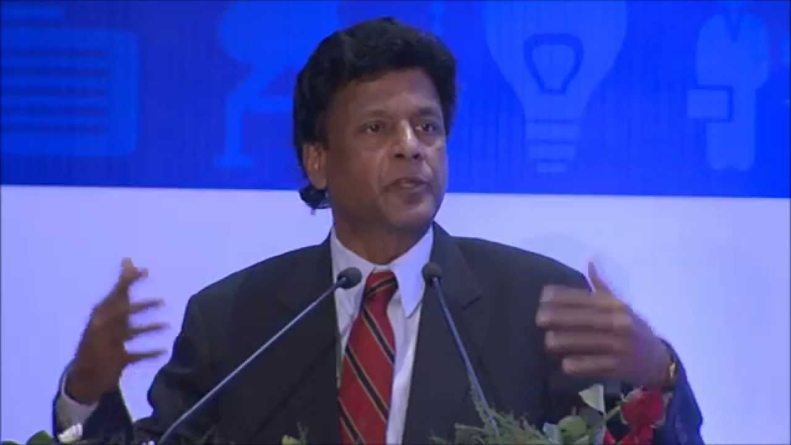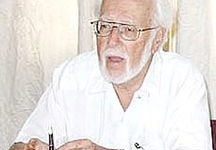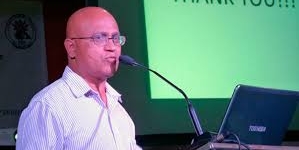Granger, the PNC and power
BY: RAVI DEV
Over the last year and a half, and especially during the post-NCM manoeuvres and elections hijinks, many commentators have either marvelled or bemoaned David Granger’s scant regard for the constitution (the NCM) or democratic institutions like elections (SoP). Constitutions, of course, are supposed to authoritatively allocate power in a state and elections are supposed to confer authority to a party or coalition to direct the affairs of state as the government for a specified period.
To understand Granger’s seeming “idiosyncrasy” as some put it when he interpreted the constitution as he saw fit, and the unctuous homilies he utters while his myrmidons rape the electoral apparatus to “give David another five years”, we have to dissect his conception of political power. More specifically, we have to understand his mentor’s Burnham’s conception since this was directly transmitted to him as the disseminator of the latter’s political philosophy to the armed forces.
Burnham was very open about his political philosophy for action: Machiavelli’s “The Prince”, was his Bible. Machiavelli’s teachings have scandalised society ever since he proposed them in the 16th century. He rejected the still prevalent moralistic view that rulers (today, “politicians”) must behave in accordance with ethical norms and earn the authority to rule because of their “virtuous lives”. Today, they would be chosen in elections.
Machiavelli insisted that there is no moral basis for judging between legitimate and illegitimate uses of power and politicians must focus totally on getting and keeping power. By any means necessary. Burnham accepted the centrality of power and is famously quoted as saying, “Politics is all about power and any politician who says otherwise is either a fool or lying.” Machiavelli, as Burnham did in practice, gave short shrift to legalities since they concluded these depend on the force for their application. It is better to concentrate on the force as the basis of power.
And it is for this reason that Burnham built up the armed forces in Guyana to the highest ratio per civilian in the world: Granger has single-mindedly followed suit. The Police and GDF have been boosted to their highest strength, while the People’s Militia and the Cadet Corps have been resuscitated and are at full strength. In the debate between guns and sugar, with the Machiavellian Granger, the guns, of course, won out.
In the case of Granger and Burnham, historical circumstances conspired to give them power resources far beyond the unchallenged armed forces. There is the bureaucracy, which, like the Police Force, has been dominated by “kith and kin” for more than a century. Newer state institutions like GECOM, which is supposed to be “autonomous”, also suffer from the same proclivity. Most crucially, Granger also possesses “disruptive power”: controlling the potential or likelihood of particular groups looting, burning and committing general mayhem. This is why businesses are presently boarded up in Georgetown.
Power has two major attributes – resources and their mobilisation. From the above, we can see that the resources at the disposal of a PNC leader – especially with one having his Machiavellian conception of power – would see himself in a very dominant position with other competitors for power, who depend on legitimacy through the ballot box for their authority. The latter, in any case, would be very tenuous since it can be challenged at any time – as the PPP was post-1997.
Mobilisation capabilities include the group’s morale, motivation, cohesiveness and strategic ability to cope with new situations. All of these, of course, are summarised by the word “leadership”. Since he took over the helm of the PNC in 2011, Granger has focused on demonising the PPP in the eyes of his constituency and has succeeded wildly in mobilising his constituency. He has also used Machiavelli’s advice that the leader must be hypocritical and present himself as a person with the highest moral values. Hence the frequent pictures of Granger kneeling and praying in Church, etc..
Machiavelli advised that what we call “cognitive dissonance” today, would not bother the hypocritical leader’s followers. Today, they blindly follow Granger as “honest, decent and suffused with integrity”, even as he oversaw the most blatant rigging of elections in the history of Guyana. And that’s saying a lot.
Granger the Machiavellian knows if he hadn’t rigged, the PPP would get in. He, therefore, loses nothing by “trying a thing”: he at least stands a chance of clinging on with the backing of his power resources. The recount is just a ploy.






















